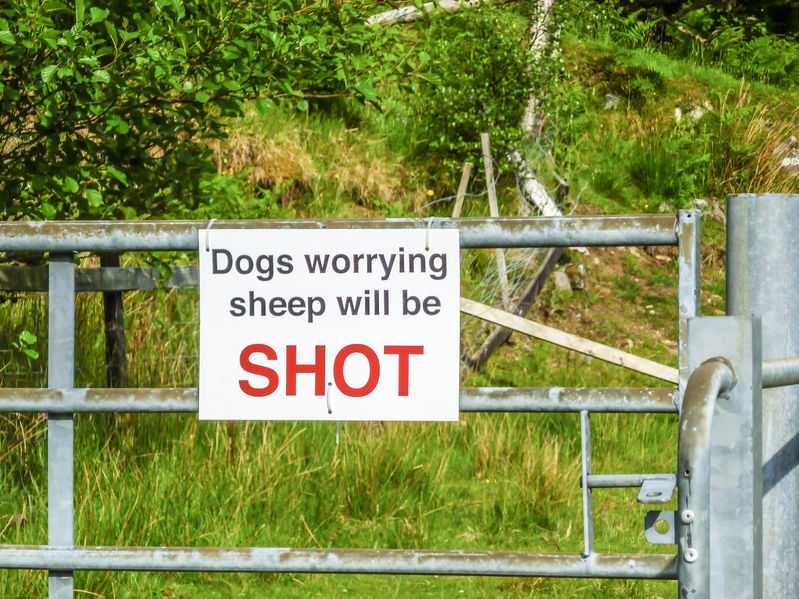
Farm leaders are requesting new livestock worrying legislation ahead of the upcoming King’s Speech after the government ditched tougher measures in the summer.
The industry has warned that dog attacks on livestock continue to represent a significant financial, emotional and welfare issue for farmers across the country.
Although sparse, where data on livestock attacks has been recorded by rural crime forces, the results demonstrate that this is an important issue which shows no sign of declining.
For example, data published by North Wales Police alone reported more than 100 attacks in a 12 month period in 2013; with significant injuries and mortality levels reported.
Further analysis of North Wales farms showed that there were 449 cases of livestock attacks between 2013 and 2017.
In addition, over the same 4 year period, data from 5 forces - North Yorkshire, Devon and Cornwall, Sussex, North Wales and Hertfordshire - found that there were 1,705 recorded incidents of livestock worrying and attacks.
During these incidents, 1,928 animals were killed, and 1,614 injured at an estimated cost to farming businesses of £250,000. One in 10 of the incidents involved repeat offenders.
Despite the growing problem, the government scrapped the Kept Animals Bill in May, which included tougher livestock worrying measures.
The Farmers’ Union of Wales (FUW) has written to the UK government highlighting that dog attacks on livestock continue to represent a significant issue for farming families.
In his letter, FUW President Ian Rickman stressed that the crime remains significantly under-reported and under-recorded.
He said: “The inability to officially monitor the extent and impact of the issue - coupled with a lack of police powers to bring offenders to justice - has eroded confidence in reporting amongst our membership.”
In the letter, the union further highlighted that the lack of a substantive legal framework meant that there was no real deterrent for offenders.
Alongside the mandatory recording of dog attacks on livestock by police forces, the FUW believes that a failure to report a dog attack should be an offence in order to ensure that injured sheep are not left with significant welfare issues.
In addition, it said that fines levied on offenders should be proportionate to the serious financial and welfare outcomes of this crime and should allow for full compensation.
The union also called for the legal framework relating to this issue to ensure that police forces had the powers requisite to allow for the proper investigation, enforcement and penalisation of such crimes.
This includes powers relating to search and seize, powers to obtain DNA samples from suspect dogs, powers to confiscate dogs , powers to ban owners from keeping another dog and powers of dog destruction after conviction.
Mr Rickman said: “The evidence surrounding the nature and extent of dog attacks on livestock has led the FUW to believe that the only way to properly tackle such crimes is by introducing new legislation which is fit-for-purpose.
“It is now incumbent on the government to protect rural communities by ensuring that these elements of the UK Kept Animals Bill are brought forward in the forthcoming King’s Speech."
